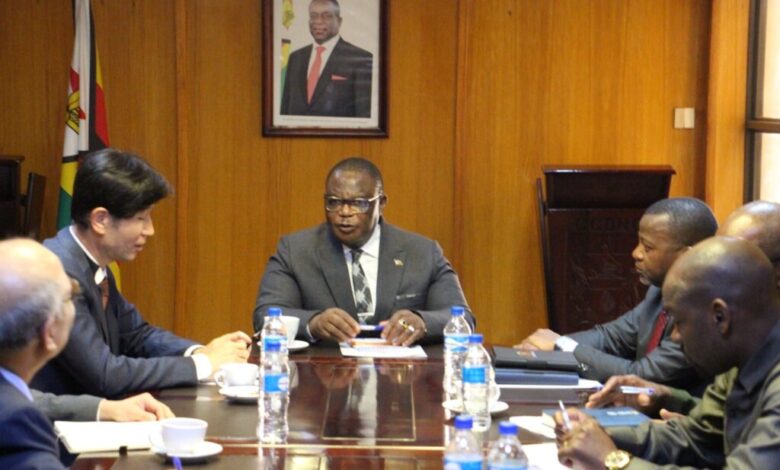South Korea Signals Growing Business Interest in Zimbabwe as Economic Ties Strengthen

The South Korean government has announced a growing wave of business interest in Zimbabwe, opening the door for increased economic cooperation between the two nations. The announcement was made by Korea’s Ambassador to Zimbabwe, Jae Kyung Park, following a courtesy visit to Vice President Dr Constantino Chiwenga in Harare this morning.
Ambassador Park highlighted the growing enthusiasm among Korean investors to establish strong partnerships with Zimbabwean counterparts across key sectors such as agriculture, mining, and pharmaceuticals.
“The focus of today’s discussion with the Vice President was on the agricultural sector,” said Ambassador Park. “I updated the Vice President on what the Embassy and our agricultural office, KOPIA, are planning and implementing, including the seed potato project and the small grain project.”
The Korea Programme on International Agriculture (KOPIA), a long-standing collaboration between the two countries, has played a pivotal role in enhancing Zimbabwe’s agricultural capacity through technology sharing and crop development initiatives. The recent engagement suggests that the partnership is set to broaden significantly.
In addition to agriculture, Ambassador Park noted that Korean companies in mining and pharmaceutical industries are expressing strong interest in tapping into Zimbabwe’s market potential. “I was happy to share with the Vice President the growing interest from Korean companies, mining companies, and pharmaceutical companies, in having good business relations with their counterparts in Zimbabwe,” he said.
This development comes as Zimbabwe continues to seek strategic foreign partnerships that align with its economic recovery and industrialisation goals. With South Korea being one of Asia’s most technologically advanced economies, increased investment from Korean firms could bring vital capital, innovation, and job creation to Zimbabwean sectors in need of revitalisation.
Analysts view the move as a positive indicator of Zimbabwe’s growing appeal to non-traditional investors in Asia. The potential for technology transfer, capacity building, and sustainable development is expected to be central to future agreements.
As diplomatic and commercial engagements continue to deepen, the relationship between Zimbabwe and South Korea may soon become a cornerstone of bilateral cooperation in Southern Africa, with tangible benefits for both economies.




